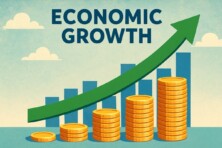The governor of the Bank of Japan, Kazuo Ueda, hinted at an extremely low level of probability that by the end of this year, politicians will have data providing them with a reason sufficient to announce the end of the period of negative interest rates.

On Monday, November 6, Kazuo Ueda, while talking to local business leaders in Nagoya, Aichi Prefecture, noted that it should not be argued that there is zero chance that the authorities will be able to determine within a year that the Bank of Japan’s 2% inflation target has been achieved. At the same time, in the context of these arguments, he noted that there are less than two months left until the end of 2023. According to the media, this clarification should be interpreted as a sign of a kind of hint that the probability of implementing a scenario implying that the authorities will announce the end of the period of negative interest rates is low.
After the statement of the head of the Bank of Japan, the yen traded in a narrow range, showing an intraday decline of 0.1%, to about 149.50 to the dollar. The value of bonds has grown, catching up with the pace of the dynamics of world rates. This trend, according to experts, is because Japanese markets have opened after a long weekend. The benchmark yield on 10-year bonds is fixed at 0.87% after a decline of five basis points.
Kazuo Ueda is the first academic to hold the position of head of the Bank of Japan. According to him, the achievement of the inflation target from the point of view of theoretical forecasting can be fixed in 2024, and then the year after that. He also noted that such a decision could be announced following any meeting of the financial regulator. The head of the Bank of Japan emphasized that this is an assumption that exists in the space of a theoretical perception of current realities and observed signs of further development of the situation. Kazuo Ueda is probably hinting at a low probability of a relatively positive scenario. But this is also just a guess.
In September, the head of the Bank of Japan, according to the media, kindled market speculation. His statement that the probability of reaching the target price level by the end of this year is not equal to zero has become a kind of catalyst for the relevant processes. Then the head of the Bank of Japan clarified that he just wanted to make sure that the board explored all the possibilities during the discussions.
Kazuo Ueda on November 6 continued to hint at signs of gradual progress in achieving the inflation target of the financial regulator. At the same time, there is no final understanding of when the situation will normalize and the corresponding state of affairs will be stable.
During a speech in Nagoya, the head of the Bank of Japan said that the probability of implementing the forecast to achieve the 2% price stability target seems to be gradually increasing. But at the current time, there is uncertainty about the prospects for wage growth and some other important factors in this case.
According to Kazuo Ueda, a steady and stable achievement of the price stability target has not yet been provided with sufficient certainty. The media note that the content of the rhetoric of the head of the Bank of Japan demonstrated a gradual transformation as his confidence in the likelihood of a productive path to the mentioned goal increased, albeit very cautiously.
The financial regulator predicts that next year the intensity of price growth in this Asian country will again be higher than the target. After the September meeting on policy issues, Kazuo Ueda stated that there is no stable inflation indicator within the framework that was identified as the most preferred. The head of the Bank of Japan did not elaborate on his words by providing additional explanations.
The specified regulator last week adjusted its mechanism for controlling the yield curve. This was done to eliminate the potential side effects of monetary policy easing. Some economists have called these actions of the financial regulator a tiptoe towards normalization. Many experts predict a return to tightening monetary policy in the first half of next year.
The Bank of Japan has increased its price growth forecast for the next fiscal year to 2.8%. This indicator is significantly higher than economists’ expectations.
As we have reported earlier, Bank of Japan Launches CBDC Pilot.









